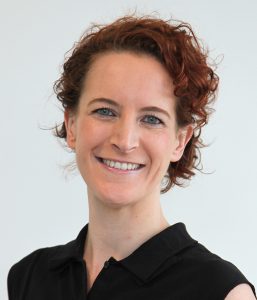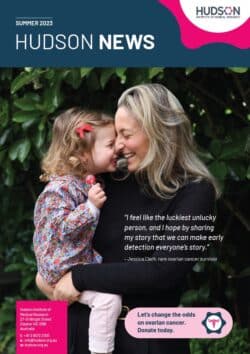CASS Foundation supports three Hudson Institute research projects
Four Hudson researchers have been awarded grants totalling more than $160,000 by the CASS Foundation to further their research projects into pancreatic cancer, muscle wasting diseases and developing female contraceptives.
CASS Foundation is a private philanthropic organization that supports Victorian medicine and science research projects that have the potential to lead to improved treatment and practice.
Professor Brendan Jenkins, from Hudson’s Centre for Innate Immunity and Infectious Diseases, received a $51,500 grant to develop a new procedure for taking samples of pancreatic cancer tumours.
Pancreatic cancer is an inflammation-associated cancer with an extremely low five per cent five-year survival rate.
Currently, the open surgical biopsy used to extract genetic material from patients to test and predict responsiveness to cancer therapies is very invasive, and the procedure can only be performed on 20 per cent of all individuals.
In collaboration with Dr Daniel Croagh from Monash Medical Centre, Prof Jenkins’ group recently trialed an alternative less invasive process called endoscopic ultrasound-guided fine-needle aspirate (EUS-FNA).
This technique uses a thin, hollow needle to collect the samples of cells used for extracting and analyzing genetic material and would be available to nearly all pancreatic cancer patients.
“The goal of this project is to demonstrate that EUS-FNA can provide a reliable source of high quality genetic material fit for testing from virtually all pancreatic cancer patients,” Professor Jenkins said.
“We will look to lay the foundations for introducing EUS-FNA as a standard method of screening pancreatic cancer patients and improve unacceptably low survival rates by increasing the number of patients that respond to individualised therapies,” he said.
Dr Justin Chen and Dr Kelly Walton from the Centre for Endocrinology and Metabolism received a $57,000 grant to trial a new treatment for muscle wasting.
They have engineered a new protein, which is aimed at reversing and preventing muscle wasting in diseases like muscular dystrophy and cancer cachexia.
“The CASS grant will enable us to deliver this protein in animal models, with the ultimate goal of increasing muscle mass and strength, and prolonging their survival,” Dr Chen said.
Dr Jemma Evans from the Centre for Reproductive Health received a grant to the value of $59,000 to look at developing an alternative to hormone-based contraceptives for women.
Her project will analyse the expression of SOX-17, a molecule thought to play a role in preparing the endometrium for an embryo, and in implantation.
“If we can prove that blocking this molecule creates a hostile environment for an embryo, it’s an exciting step forward in development of a non-hormone based contraceptive,” Dr Evans said.
Non-hormone based alternatives would have use for women who can’t take hormone-based contraceptives due to underlying medical conditions or because they experience severe side effects to the hormones, or women in developing countries whose limited access to clean water may prevent them swallowing a daily pill.
“Ideally, we would develop this into a formulation which can be administered by the women herself, empowering women to take control of their fertility,” Dr Evans said.
Contact us
Hudson Institute communications
t: +61 3 8572 2697
e: communications@hudson.org.au




